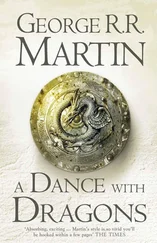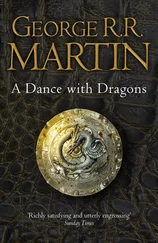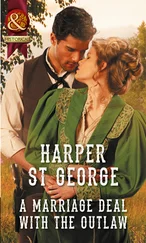Joseph Belcher - George Whitefield - A Biography, with special reference to his labors in America
Здесь есть возможность читать онлайн «Joseph Belcher - George Whitefield - A Biography, with special reference to his labors in America» — ознакомительный отрывок электронной книги совершенно бесплатно, а после прочтения отрывка купить полную версию. В некоторых случаях можно слушать аудио, скачать через торрент в формате fb2 и присутствует краткое содержание. Жанр: foreign_antique, foreign_prose, на английском языке. Описание произведения, (предисловие) а так же отзывы посетителей доступны на портале библиотеки ЛибКат.
- Название:George Whitefield: A Biography, with special reference to his labors in America
- Автор:
- Жанр:
- Год:неизвестен
- ISBN:нет данных
- Рейтинг книги:4 / 5. Голосов: 1
-
Избранное:Добавить в избранное
- Отзывы:
-
Ваша оценка:
- 80
- 1
- 2
- 3
- 4
- 5
George Whitefield: A Biography, with special reference to his labors in America: краткое содержание, описание и аннотация
Предлагаем к чтению аннотацию, описание, краткое содержание или предисловие (зависит от того, что написал сам автор книги «George Whitefield: A Biography, with special reference to his labors in America»). Если вы не нашли необходимую информацию о книге — напишите в комментариях, мы постараемся отыскать её.
George Whitefield: A Biography, with special reference to his labors in America — читать онлайн ознакомительный отрывок
Ниже представлен текст книги, разбитый по страницам. Система сохранения места последней прочитанной страницы, позволяет с удобством читать онлайн бесплатно книгу «George Whitefield: A Biography, with special reference to his labors in America», без необходимости каждый раз заново искать на чём Вы остановились. Поставьте закладку, и сможете в любой момент перейти на страницу, на которой закончили чтение.
Интервал:
Закладка:
It was not till his fifth visit to London, in March, 1741, that Whitefield ventured to preach in Moorfields on a week-day ; the day selected for this bold action being Good-Friday. His chief, if not his only friends on this occasion, he tells us, were a few "orthodox dissenters." These people perceiving the inconvenience to which he was subjected by the weather, during the morning and evening services in Moorfields, procured the loan of a piece of ground, and employed a carpenter to build a large temporary shed, to screen the auditory from the cold and rain. This building Whitefield called a "tabernacle," as it was only intended to be used a few months during his stay in his native country, previous to his return to America. Providence, however, had otherwise determined, and this proved the commencement of a permanent establishment of the means of grace. A great spiritual awakening took place; congregations became very large, acquiring at the same time considerable cohesion, and assuming a stationary character. This original fabric of wood was a place of large dimensions; and notwithstanding its rude aspect and temporary design, it sufficed for the accommodation of Whitefield and his flock, during the twelve succeeding years – a period the most brilliant and useful of his extraordinary career.
Some of Whitefield's friends, however, did not approve of the original wooden structure; and anticipating or desiring the formation of a Christian church, they called for the immediate erection of a substantial brick building, a point which was debated with a warmth approaching to violence, of which Whitefield makes pathetic mention seven years afterwards. Here then several important facts are established: that the original tabernacle sprang not from Whitefield, but from a voluntary movement among his adherents, composed chiefly, if not wholly, of Protestant dissenters; that the expense was borne not by him, but by them; that much debate and dissension attended the measure, proving the thoroughly free and popular character of the original movement; and that, as the edifice originated with the people alone, so did the institution of regular worship. It is certain that fears existed in the mind of Whitefield as to the success of such an organization; but the results most happily disappointed his expectations.
The subject of the erection of a more spacious edifice in the place of the tabernacle of wood, was first discussed at the mansion of Lady Huntingdon, in Leicestershire, when Drs. Doddridge and Stonehouse, and the Rev. Messrs. Hervey and Whitefield happened to meet together, in the summer of 1751. During the following winter, Whitefield began to make collections for the object, and on almost its first presentation in London, nine hundred pounds, or four thousand five hundred dollars, were subscribed. "But," he says, "on the principle that burned children dread the fire, I do not mean to begin until I get one thousand in hand, and then to contract at a certain sum for the whole." The fact was, that Whitefield had often been in great straits for the support of his orphan-house in Georgia, "for I forgot," he says, "that Professor Francke built in Glaucha, in a populous country, and that I was building at the very tail of the world." In March, 1753, he wrote to Mr. Charles Wesley, "On Tuesday morning the first brick of our new Tabernacle was laid with awful solemnity. I preached from Exodus 20:24, 'In all places where I record my name, I will come unto thee, and I will bless thee.' The wall is now about a yard high. The building is to be eighty feet square. It is on the old spot. We have bought the house, and if we finish what we have begun, shall be rent free for forty-six years." In June the dedicatory services took place, when the Tabernacle, though capable, with its capacious galleries, of holding four thousand people, was crowded almost to suffocation. Often have we seen this vast building crowded with worshippers, with delight have we occupied its pulpit, and with devout gratitude do we record, that never for a moment has the frown of heaven rested upon it. Thousands will ever bless God for its erection.
Not unfrequently has the question been discussed, to what denomination of Christians does the Tabernacle really belong? In answer to this question, we give a legal document which may also show what is done in reference to houses of worship in England, under the laws for the maintenance of religious toleration.
"These are to certifie whom it may Concern, that a Certificate bearing date the Eighteenth Day of June, in the year of Our Lord One Thousand Seven Hundred and Sixty-four, under the Hands of Starkey Myddleton Minister, Robert Keen, Thomas Cox, Samuel Grace, Robert Hodgson, James Smith, Thomas Robinson, Benjamin Coles, Thomas Brooks, and Samuel Lockhart, for appropriating and setting apart a Certain Building for that purpose erected, situate near the Barking Dogs in the Parish of Saint Luke in the County of Middlesex, and intended for the meeting place of a certain Congregation of Protestant Dissenters from the Church of England, calling themselves Independents, was Registered in the Registry of the Dean and Chapter of the Cathedral Church of Saint Paul, London, This Twenty-first Day of June in the year of Our Lord One Thousand Seven Hundred and Sixty-four.
"THOMAS COLLINS, Deputy Registrar."While the new Tabernacle was in the course of erection, Whitefield visited Norwich, where his ministry was largely attended, and notwithstanding much opposition, was followed with considerable success. Writing to his friend Keen, he says, "How does God delight to exceed even the hopes, and to disappoint the fears of his weak, though honest-hearted people. In spite of all opposition, he hath caused us to triumph even in Norwich. Thousands attend twice every day, and hear with the greatest eagerness. I hope it will appear yet more and more that God hath much people here." Compelled by alarming illness, the result of his too much preaching, he suddenly returned to London, from whence he thus wrote to one of the converts at Norwich: "I shall little regard the weakness and indisposition of my body, if I can but have the pleasure of hearing, if not before, yet at the great day, that good was done to one precious soul at Norwich. Blessed be God for the seed sown there. I doubt not but it will be watered with the dew of his heavenly blessing, and bring forth a divine increase."
Truly the gospel did triumph, not only in the erection of the Tabernacle in that city, but in preparing sinners to be pillars in the temple of God, and to win others to his service.
Among other converts won at Norwich, was the afterwards popular and useful minister of Christ, the Rev. Robert Robinson, of Cambridge, England. When a young man, about eighteen, he resided in that city, and was engaged in the business of a barber. When he was walking one morning with several companions who had agreed that day to take their pleasure, the first object which attracted their attention was an old woman who pretended to tell fortunes. They immediately employed her to tell theirs, and that they might qualify her for the undertaking, first made her thoroughly intoxicated. Robinson was informed, among other things, that he would live to a very old age, and see his children, grandchildren, and great-grandchildren growing up around him. Though he had assisted in intoxicating the old woman, he had credulity enough to be struck with those parts of the prediction which related to himself. "And so," said he when alone, "I am to see children, grandchildren, and great-grandchildren. At that age I must be a burden to the young people. What shall I do? There is no way for an old man to render himself more agreeable to youth, than by sitting and telling them pleasant and profitable stories. I will then," thought he, "during my youth, endeavor to store my mind with all kinds of knowledge. I will see and hear, and note down every thing that is rare and wonderful, that I may sit, when incapable of other employments, and entertain my descendants. Thus shall my company be rendered pleasant, and I shall be respected, rather than neglected, in old age. Let me see, what can I acquire first? Oh, here is the famous Methodist preacher, Whitefield; he is to preach here, they say, to-night; I will go and hear him."
Читать дальшеИнтервал:
Закладка:
Похожие книги на «George Whitefield: A Biography, with special reference to his labors in America»
Представляем Вашему вниманию похожие книги на «George Whitefield: A Biography, with special reference to his labors in America» списком для выбора. Мы отобрали схожую по названию и смыслу литературу в надежде предоставить читателям больше вариантов отыскать новые, интересные, ещё непрочитанные произведения.
Обсуждение, отзывы о книге «George Whitefield: A Biography, with special reference to his labors in America» и просто собственные мнения читателей. Оставьте ваши комментарии, напишите, что Вы думаете о произведении, его смысле или главных героях. Укажите что конкретно понравилось, а что нет, и почему Вы так считаете.












